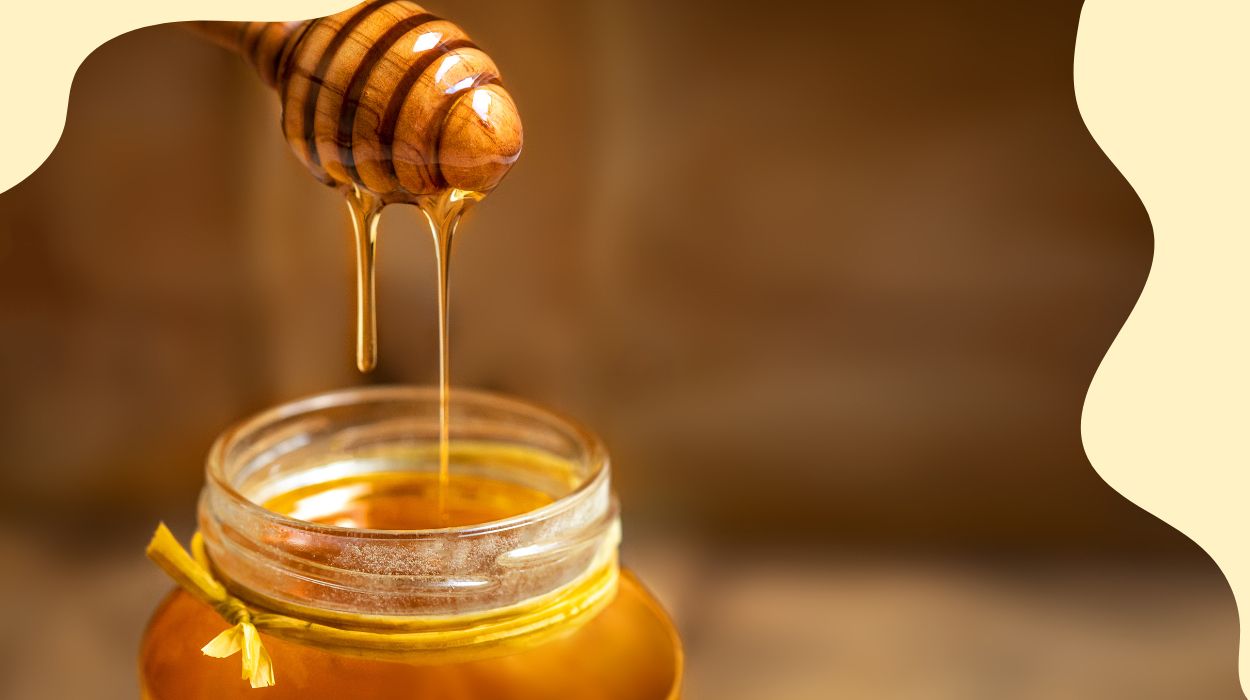Is Honey Vegan? Exploring The Vegan Status Of Honey In 2024

The question of whether honey can be considered vegan has generated conversations and diverse viewpoints among the vegan community. Honey is a natural sweetener[1] derived from bees and raises ethical concerns regarding exploiting these creatures. This concept originates in veganism, which is an ethical philosophy[2] more than just a diet.
While some vegans argue that honey production contradicts the principles of veganism, others may hold differing opinions. This article will delve into the reasons behind this debate, explore various perspectives and shed light on the factors influencing whether or not honey is deemed compatible with a vegan lifestyle.
Consequently, this exploration aims to enhance your comprehension of the intricate considerations of including or excluding honey from a vegan diet.
Is Honey Vegan-Friendly?
Honey is not considered vegan-friendly by a strict definition of veganism. Veganism seeks to exclude all forms of animal exploitation, and honey production involves the exploitation of bees.
Bees are often subjected to practices that disrupt their natural behavior and well-being, such as wing clipping, artificial insemination, and the replacement of honey with sugar water substitutes.
Avoiding honey aligns with the principle of not using animal products obtained through exploitation, making it incompatible with a vegan lifestyle.
Do Vegans Eat Honey
This decision comes down to personal choice and varies among individuals. Many vegans prefer to steer clear of honey due to ethical concerns surrounding how bees are treated during production. Beekeeping methods often disrupt natural bee behaviors, which some consider exploitative.
On the other hand, other vegans consume honey but only when sourced from reputable beekeepers who prioritize bee welfare and use sustainable practices instead. Ultimately, including or excluding honey from a healthy vegan diet remains a personal decision with differing viewpoints among vegans.
Why Is Honey Not Vegan?
Honey is considered non-vegan because it comes from an animal source, specifically honey bees. The exploitation involved in its production process impacts bees’ well-being negatively. Bees produce honey as a food source for themselves, but beekeepers harvest it from hives for human consumption.
This process involves wing clipping, artificial insemination, and replacing honey with sugar water substitutes, such as high fructose corn syrup, which are seen as exploitative. Most vegans, therefore, choose to abstain from consuming honey.
Reasons Some Vegans Still Consume Honey
Many vegans choose to avoid Honey for ethical reasons. It is worth noting that some vegans still see fit to include honey in their diet. Here are a few explanations for why this may be the case:
Personal Choice
Within the vegan movement, individuals may have differing interpretations and priorities. Some vegans do not view honey production as being as exploitative as other animal products, such as brown rice syrup, leading them to decide to incorporate it into their diet personally.
Sustainable Beekeeping
Certain beekeepers only want to employ sustainable and ethical practices. These beekeepers allow bees, including wild bees, to retain enough honey for their own needs, provide them with suitable habitats, and minimize interventions that could harm bee welfare. Vegans who consume honey may seek products from these reputable beekeepers.
Supporting Bee Conservation
Bees, including the queen bee, are incredibly important for pollination and the overall health of ecosystems. For some vegans, consuming honey supports beekeepers who strive towards conserving bee populations, promoting biodiversity, and raising awareness about bees’ vital role in our world.
Local And Small-Scale Beekeeping
Some vegans specifically choose to consume honey obtained from local or small-scale beekeepers who maintain closer relationships with their bees. Vegans see this as a more sustainable and ethical choice than honey or bee-derived sweeteners produced through industrial practices using high fructose corn or agave syrup.
It is expedient to acknowledge that these reasons may not be unanimously accepted by all vegans as personal choices within the vegan community can vary greatly.
Reasons Some Vegans Avoid Honey
Many vegans avoid consuming honey for the following reasons:
Exploitation Of Bees
Beekeeping practices in the production of honey involve taking away the food source intended for their colonies. This goes against the principles followed by some vegans to avoid using animal products obtained through exploitation.
Bee Welfare Concerns
Further concerns about bee welfare arise due to certain harmful practices employed in commercial honey production, such as wing clipping or using sugar water substitutes instead of natural honey.
Alternative Sweeteners
Vegans have an array of alternative sweeteners to choose from that do not involve harming animals. The best vegan honey alternatives are maple syrup, agave nectar, and date syrup are some examples of vegan-friendly sweetening without relying on honey.
Environmental Impact
There are environmental concerns associated with large-scale honey production. Transportation of bees, monoculture agriculture, and potential harm to native bee populations and ecosystems are all factors influencing the decision of some vegans to avoid consuming honey.
Consistency With Vegan Values
Avoiding honey is consistent with the values many vegans embrace- promoting a compassionate and ethical lifestyle towards animals by minimizing harm. By choosing to exclude honey from their diets, vegans express their commitment to not supporting industries that profit from exploiting honey bees.
Vegan Honey Alternatives
If you’re looking for vegan-friendly alternatives to honey, several choices can be used in a variety of recipes and for sweetening purposes. Here are some great options:
Agave Nectar
Agave nectar is obtained from the agave plant, a sweet syrup that closely resembles the consistency of honey. It can be used as a substitute in baking, beverages, and dressings.
Maple Syrup
This is made from the sap of maple trees. Maple syrup offers a unique flavor and is commonly used as a topping for items like pancakes, waffles, and desserts.
Date Syrup
Date syrup is made from dates. This syrup provides a rich sweetness similar to caramel, and It works well as a sweetener in baking, sauces, and dressings.
Bee Free Honey
This vegan alternative is made from plant-based ingredients such as apples, pears, and lemon juice to replicate the taste and texture of honey without exploiting animals.
Molasses
A thick and dark syrup is obtained from either the sugar cane or sugar beets refining process. Molasses have a strong flavor which can be used as a sweetener in baking or cooking.
Coconut Nectar
This is obtained from coconut blossom sap. This nectar has a mild sweetness, making it an ideal substitute for honey in various recipes.
Rice Syrup
Rice syrup is made from the fermentation of rice and boasts a mild sweetness that can be conveniently used instead of honey when baking or cooking.
Tips To Spot Honey On The Ingredient Label
When examining ingredient labels, particularly for honey, keep the following in mind:
- Look for the word “honey.”
- Check for honey derivatives such as “honey powder” or “honey extract.”
- Watch out for alternative names like “nectar” or “syrup.”
- Be aware of sweeteners, as some vegan meal replacements enriched with fruits and veggies may contain honey as a natural sweetener.
- Check for ingredients like natural sweeteners or natural sugar, including honey.
- Ensure that these products still provide essential vitamins and minerals sourced from fruits and veggies or green powders, contributing to a well-rounded vegan diet.
Conclusion
The debate on whether honey can be considered vegan arises from its roots in bee exploitation. While some vegans choose to include honey in their diet based on personal beliefs, most vegans opt to avoid it due to ethical concerns and their commitment to animal welfare.
Instead, they rely on alternative sweeteners like maple syrup (available through vegan meal delivery services), which offers sweetness and aligns with their ethical values. These alternatives also provide a range of flavors, essential vitamins, and minerals, such as those found in green powders.
Frequently Asked Questions
Honey is not considered vegan because it is a product made by bees, and its production involves the exploitation of bees and their habitats.
Most vegans abstain from consuming honey due to its animal origin and the ethical concerns surrounding its production
The ethics of consuming honey vary among individuals. Some argue that beekeeping practices can harm bees, while others support sustainable and ethical beekeeping methods.
A person who identifies as a vegan but consumes honey is often referred to as a “beegan” or “honey vegan.”
Yes, there are various vegan alternatives to honey available in the market, such as maple syrup, agave nectar, date syrup, and molasses.
Beeswax is derived from bees and is generally not considered vegan.
No, honey is not plant-based. It is produced by bees using nectar collected from flowers and then processed within their bodies.
The primary reasons vegans avoid honey are the exploitation of bees, potential harm to bee populations, and the principle of not consuming animal-derived products.
+ 2 sources
Health Canal avoids using tertiary references. We have strict sourcing guidelines and rely on peer-reviewed studies, academic researches from medical associations and institutions. To ensure the accuracy of articles in Health Canal, you can read more about the editorial process here
- Saeed Samarghandian, Omid Mehrpour and Fariborz Samini (2017). Honey and Health: A Review of Recent Clinical Research. [online] 9(2), pp.121–127. doi:https://doi.org/10.4103/0974-8490.204647.
- Food, Culture & Society. (2015). Veganism, Identity and the Quest for Authenticity. [online] Available at: https://www.tandfonline.com/doi/abs/10.2752/175174412X13190510222101



